Did Obama trade a male Jane Fonda confused deserter type for terrorists? There seem to be questions! (See 1,1a and 1b below.)
Our soldier is a prisoner of war but Obama tells us jihadists and Taliban are enemy combatants, Am I missing something in the translation or is this just more Obama duplicitous language and obfuscation?
===
Hillary, as with Obama, is always blameless. There is always something beyond which she had control and/or could not be concerned about because dirty politics always seems to find her and soil her attire.
Saint Hillary the innocent! (See 2 below.)
===
Dick
------------------------------------------------------------
1) Fellow soldiers call Bowe Bergdahl a deserter, not a hero
The sense of pride expressed by officials of the Obama administration at the release of Army Sgt. Bowe Bergdahl is not shared by many of those who served with him -- veterans and soldiers who call him a deserter whose "selfish act" ended up costing the lives of better men.
"I was pissed off then and I am even more so now with everything going on," said former Sgt. Matt Vierkant, a member of Bergdahl's platoon when he went missing on June 30, 2009. "Bowe Bergdahldeserted during a time of war and his fellow Americans lost their lives searching for him."
Vierkant said Bergdahl needs to not only acknowledge his actions publicly but face a military trial for desertion under the Uniform Code of Military Justice.
A reporter asked Defense Secretary Chuck Hagel Sunday whether Bergdahl had left his post without permission or deserted -- and, if so, whether he would be punished. Hagel didn't answer directly. "Our first priority is assuring his well-being and his health and getting him reunited with his family," he said. "Other circumstances that may develop and questions, those will be dealt with later."
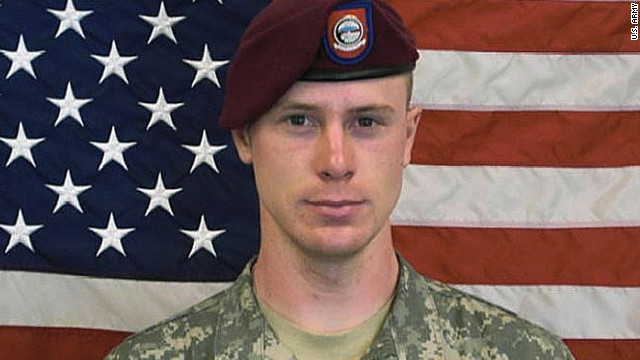
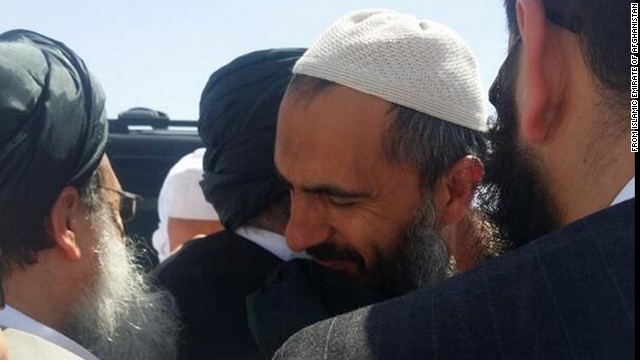
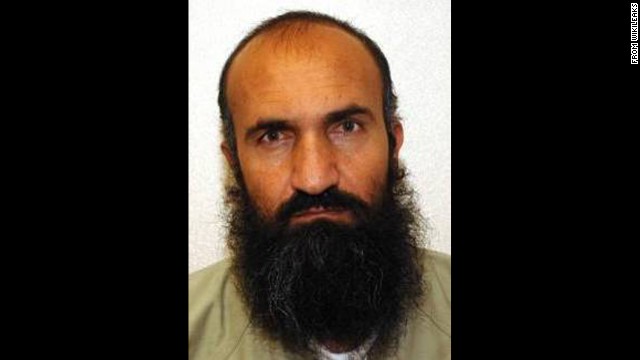
Following his release from five years of captivity in Afghanistan on Saturday, Bergdahl was transferred to a military hospital in Germany.
A senior Defense official said Bergdahl's "reintegration process" will include "time for him to tell his story, decompress, and to reconnect with his family through telephone calls and video conferences."
Said Bergdahl's former squad leader, Greg Leatherman: "I'm pleased to see him returned safely. From experience I hope that he receives adequate reintegration counseling. I believe that an investigation should take place as soon as healthcare professionals deem him fit to endure one."
Another senior Defense official said Bergdahl will not likely face any punishment. "Five years is enough," he told CNN on condition of anonymity.
Questions surround the circumstances of Bergdahl's disappearance. Conflicting details have since emerged about how the militants managed to capture Bergdahl. Published accounts have varied widely, from claims he walked off the post to another that he was grabbed from a latrine.
According to first-hand accounts from soldiers in his platoon, Bergdahl, while on guard duty, shed his weapons and walked off the observation post with nothing more than a compass, a knife, water, a digital camera, and a diary.
At least six soldiers were killed in subsequent searches for Bergdahl, and many soldiers in his platoon said attacks seemed to increase against the United States in Paktika Province in the days and weeks following his disappearance.
Many of Bergdahl's fellow troops -- from the seven or so who knew him best in his squad, to the larger group that comprised the 1st Battalion, 501st Infantry Regiment, 4th Brigade Combat Team, 25th Infantry Division -- told CNN that they signed nondisclosure agreements agreeing to never share any information about Bergdahl's disappearance and the efforts to recapture him. Some were willing to dismiss that document in hopes that the truth would come out about a soldier who they now fear is being hailed as a hero, while the men who lost their lives looking for him are ignored.
Many are flocking to social media, such as the Facebook page "Bowe Bergdahl is NOT a hero," where they share stories detailing their resentment. A number of comments on his battalion's Facebook page prompted the moderator to ask for more respect to be shown.
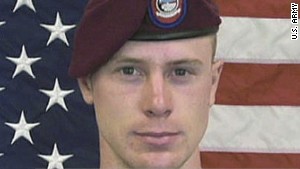

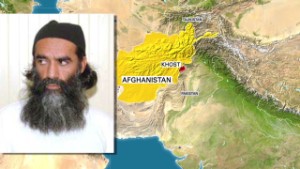
"I challenge any one of you who label him a traitor to spend 5 years in captivity with the Taliban or Haqqani, then come back and accuse him again. Whatever his intent when he walked away or was captured, he has more than paid for it."
E-mails reported by the late Michael Hastings in Rolling Stone in 2012 reveal what Bergdahl's fellow infantrymen learned within days of his disappearance: he told people that he no longer supported the U.S. effort in Afghanistan.
"The future is too good to waste on lies," Bowe wrote to his parents. "And life is way too short to care for the damnation of others, as well as to spend it helping fools with their ideas that are wrong. I have seen their ideas and I am ashamed to even be American. The horror of the self-righteous arrogance that they thrive in. It is all revolting."
Bergdahl wrote to them, "I am sorry for everything. The horror that is America is disgusting."
CNN has not independently verified the authenticity of the e-mails.
A former member of Bergdahl's squad who has yet to identify his last name publicly but goes by "Cody" tweeted this weekend that before he disappeared, Bergdahl once told him, "If deployment is lame, I'm going to get lost in the Mountains and make my way to China."
Leatherman told CNN that Bergdahl "always looked at the mountains in the distance and talked of 'seeing what's on the other side.'"
Cody noted in his Twitter recollections a story that others from Blackfoot Company relay. While soldiers were searching for Bergdahl, a platoon "came upon some children, they asked him have they seen an American. The children said 'yes, he was crawling on his belly through weeds and acting funny a while ago,'" according to Cody.
The platoon went to the village where the children said the American had gone. "Villagers said an American did come through the area and was wanting water and someone who spoke English," Cody shared.
Former Pfc. Jose Baggett, 27, of Chicago, was also in Blackfoot Company, and said he was close to two men "killed because of his (Bergdahl's) actions."
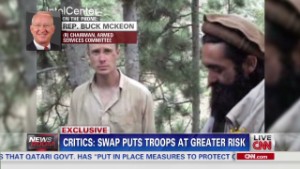
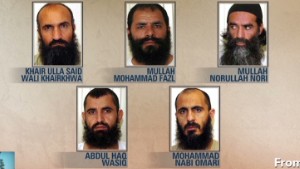

"He walked off," Baggett told CNN. "He left his guard post. Nobody knows if he defected or he's a traitor or he was kidnapped. What I do know is he was there to protect us and instead he decided to defer from America and go and do his own thing. I don't know why he decided to do that, but we spend so much of our resources and some of those resources were soldiers' lives."
Many soldiers on the ground at the time said insurgents were able to take advantage of the intense search for Bergdahl.
"A huge thing in-country is not building patterns. Well when you are looking for a person everyday that creates a pattern. While searching for him, ambushes and IEDs picked up tremendously. Enemy knew we would be coming. IEDs started being placed more effectively in the coming weeks. Ambushes were more calculated, cover and concealment was used," Cody tweeted.
On August 18, 2009, Staff Sgt. Clayton Bowen and Pfc. Morris Walker were killed by an IED in the search for Bergdahl. Staff Sgt. Kurt Curtiss was killed on August 26; 2nd Lt. Darryn Andrews and Pfc. Matthew Michael Martinek were killed after being attacked in Yahya Khail District on September 4; Staff Sgt. Michael Murphrey was killed September 5 by an IED at the Forward Operating Base, Sharana.
Moreover, other operations were put on hold while the search for Bergdahl was made a top priority, according to officers who served in Afghanistan in that time. Manpower and assets -- such as scarce surveillance drones and helicopters -- were redirected to the hunt. The lack of assets is one reason the closure of a dangerous combat outpost, COP Keating, was delayed. Eight soldiers were killed at COP Keating before it was ultimately closed.
One soldier with the 509th Regiment, a sister unit of the 501st, told CNN that after Bergdahl disappeared, the U.S. Army essentially was told to lock down the entire province of Paktika. He described sitting in the middle of a field with his platoon, vulnerable, with capabilities and personnel mismanaged throughout the region. Different platoons ran out of water, food, and ammunition.
Two mortar men -- Pvt. Aaron Fairbairn and Pfc. Justin Casillas -- were killed in a July 4, 2009, attack.
"It was unbelievable," the soldier said. "All because of the selfish act of one person. The amount of animosity (toward him) is nothing like you've ever seen before."
That Bergdahl was freed in an exchange for five detainees at Guantanamo Bay is a further source of consternation.
"I don't understand why we're trading prisoners at Gitmo for somebody who deserted during a time of war, which is an act of treason," Vierkant said.
1a) Bergdahl's Team Leader: I Just Want to Ask Him 'Why?'
The team leader who supervised Sgt. Bowe Bergdahl in Afghanistan five years ago showed mixed emotions on Monday toward the homecoming of a freed captive and fellow soldier who he also considers a deserter.
"I'm definitely happy for his family," Sgt. Evan Buetow said of Bergdahl in an interview with Newsmax TV. "I mean, he's an American citizen; I'm happy that he's back and that we can hopefully get closure to this whole incident."
But Buetow, who now works in law enforcement, said on "America's Forum" that he's still mystified by his platoon-mate's decision to "walk away" from his post, his mission and his fellow troops into the grasp of the Afghan insurgents they were fighting.
"I just want to ask him why," said Buetow.
Buetow also echoed the charge made by other platoon members that Bergdahl's actions cost the lives of soldiers sent to search for him.
"So yes, as a direct result of him leaving, several soldiers died," said Buetow.
Bergdahl, captured in 2009, is returning home as part of a controversial prisoner swap disclosed by the Obama administration, which is sending five high-level Taliban detainees from the U.S.-run facility for terror suspects in Guantanamo Bay, Cuba to the Middle Eastern kingdom of Qatar.
Buetow called the prospect of potential insurgents going free "frustrating," but sounded more preoccupied with the questions still surrounding Bergdahl's flight.
"I wouldn't say I've struggled with it, but it's something I've never forgot about," he continued. "I need closure. I don't think I'd be upset — it's been many years, and that's not the issue. I just want the truth. I want the truth to be out there.
"And I don't want him regarded as a hero," said Buetow. "I don't want him regarded as the example that soldiers should look up to, because he is the exact opposite of that."
Buetow gave his own account of what happened at their observation post in the remote, rugged Paktika province — "on the very front lines in Afghanistan," he said. He also knocked down as "false" at least one rumor circulating about Bergdahl's actions shortly after his disappearance.
"There were about 30 of us there and we just pulled guard out of our trucks and a couple bunkers," he recalled, "and the morning of June 30th, when someone went to wake up Bergdahl for his guard shift, he wasn't there."
A search of the area and a patrol to nearest village confirmed it. "Immediately a couple of small boys came up to us and said, 'Hey, we saw an American crawling through the weeds here this morning.' We thought that was interesting. That was our first knowledge that he did just walk away and was going somewhere. … It all started to develop from there."
What did not happen, according to Buetow, was Bergdahl calling back to the post on a cell phone and then destroying the handset so he couldn't be tracked.
"Cell phones weren't allowed in Afghanistan," said Buetow. "Nobody had cell phones. … Unless, after he left, he acquired a phone. But there was never a phone call made back to us or anybody. It was just, he was gone and we were chasing a ghost at that point from village to village, trying to track him down."
The same day that Bergdahl disappeared the platoon received a report that he had been spotted in a village called Yahyakehl, "which was a very dangerous place about two miles from the small OP we were at," said Buetow.
"I was there when it came over the radio that he [Berghahl] was in Yahyakehl attempting to find someone who spoke English so he could speak to the Taliban," he said, adding, "It was that quick that we realized that he's trying to reach out to the Taliban somehow."
Asked if anyone saw this coming, Buetow said, "Hindsight is 20/20."
Buetow said Bergdahl mailed his computer home and at one point asked how to get cash on a debit card that soldiers carry on deployments. But he was hardly the first soldier to offload personal effects or wonder about money — or complain, which he also did, about the U.S. mission in Afghanistan, according to Buetow.
Those words and deeds became more revealing once he'd left, said Buetow. And the idea that he was trying to engage the Taliban filled the soldiers with unease.
"As we're all sitting there on this very small base, miles away from any major forward operating base, we're … saying, 'You know what? He knows where our bunkers are, he knows where our positions are, he knows where our trucks are parked, he knows how our guard shifts change, he knows what our sectors of fire are.' "
The search for Bergdahl, quite apart from the dangers, prompted some griping among troops. But Buetow said soldiers' overriding sense of mission and solidarity — even toward a deserter — prevailed.
"We wanted to get him back, one, so that he wouldn't be killed," he said, "… but also we just wanted to get him back because he's a solider."
1a) Bergdahl's Team Leader: I Just Want to Ask Him 'Why?'
The team leader who supervised Sgt. Bowe Bergdahl in Afghanistan five years ago showed mixed emotions on Monday toward the homecoming of a freed captive and fellow soldier who he also considers a deserter.
"I'm definitely happy for his family," Sgt. Evan Buetow said of Bergdahl in an interview with Newsmax TV. "I mean, he's an American citizen; I'm happy that he's back and that we can hopefully get closure to this whole incident."
But Buetow, who now works in law enforcement, said on "America's Forum" that he's still mystified by his platoon-mate's decision to "walk away" from his post, his mission and his fellow troops into the grasp of the Afghan insurgents they were fighting.
"I just want to ask him why," said Buetow.
Buetow also echoed the charge made by other platoon members that Bergdahl's actions cost the lives of soldiers sent to search for him.
"So yes, as a direct result of him leaving, several soldiers died," said Buetow.
Bergdahl, captured in 2009, is returning home as part of a controversial prisoner swap disclosed by the Obama administration, which is sending five high-level Taliban detainees from the U.S.-run facility for terror suspects in Guantanamo Bay, Cuba to the Middle Eastern kingdom of Qatar.
Buetow called the prospect of potential insurgents going free "frustrating," but sounded more preoccupied with the questions still surrounding Bergdahl's flight.
"I wouldn't say I've struggled with it, but it's something I've never forgot about," he continued. "I need closure. I don't think I'd be upset — it's been many years, and that's not the issue. I just want the truth. I want the truth to be out there.
"And I don't want him regarded as a hero," said Buetow. "I don't want him regarded as the example that soldiers should look up to, because he is the exact opposite of that."
Buetow gave his own account of what happened at their observation post in the remote, rugged Paktika province — "on the very front lines in Afghanistan," he said. He also knocked down as "false" at least one rumor circulating about Bergdahl's actions shortly after his disappearance.
"There were about 30 of us there and we just pulled guard out of our trucks and a couple bunkers," he recalled, "and the morning of June 30th, when someone went to wake up Bergdahl for his guard shift, he wasn't there."
A search of the area and a patrol to nearest village confirmed it. "Immediately a couple of small boys came up to us and said, 'Hey, we saw an American crawling through the weeds here this morning.' We thought that was interesting. That was our first knowledge that he did just walk away and was going somewhere. … It all started to develop from there."
What did not happen, according to Buetow, was Bergdahl calling back to the post on a cell phone and then destroying the handset so he couldn't be tracked.
"Cell phones weren't allowed in Afghanistan," said Buetow. "Nobody had cell phones. … Unless, after he left, he acquired a phone. But there was never a phone call made back to us or anybody. It was just, he was gone and we were chasing a ghost at that point from village to village, trying to track him down."
The same day that Bergdahl disappeared the platoon received a report that he had been spotted in a village called Yahyakehl, "which was a very dangerous place about two miles from the small OP we were at," said Buetow.
"I was there when it came over the radio that he [Berghahl] was in Yahyakehl attempting to find someone who spoke English so he could speak to the Taliban," he said, adding, "It was that quick that we realized that he's trying to reach out to the Taliban somehow."
Asked if anyone saw this coming, Buetow said, "Hindsight is 20/20."
Buetow said Bergdahl mailed his computer home and at one point asked how to get cash on a debit card that soldiers carry on deployments. But he was hardly the first soldier to offload personal effects or wonder about money — or complain, which he also did, about the U.S. mission in Afghanistan, according to Buetow.
Those words and deeds became more revealing once he'd left, said Buetow. And the idea that he was trying to engage the Taliban filled the soldiers with unease.
"As we're all sitting there on this very small base, miles away from any major forward operating base, we're … saying, 'You know what? He knows where our bunkers are, he knows where our positions are, he knows where our trucks are parked, he knows how our guard shifts change, he knows what our sectors of fire are.' "
The search for Bergdahl, quite apart from the dangers, prompted some griping among troops. But Buetow said soldiers' overriding sense of mission and solidarity — even toward a deserter — prevailed.
"We wanted to get him back, one, so that he wouldn't be killed," he said, "… but also we just wanted to get him back because he's a solider."
1b) The Bergdahl Dishonor
The sergeant should request that every file about him be published.
By Bret Stephens
I spoke Monday with a highly decorated former Special Forces operator and asked what he thought about Bowe Bergdahl, the Army sergeant who was released over the weekend after five years of Taliban captivity in exchange for five hard cases out of Gitmo.
The former operator suggested a firing squad might be appropriate.
His view is widely shared in the community of warriors who risked—and, in at least six cases, lost—their lives searching for a soldier who wrote his parents that "the horror that is america is disgusting" before vanishing from his post in Afghanistan in 2009.
Sgt. Bowe Bergdahl's parents, Jani and Bob, with the president, May 31. Zuma Press
Whether Sgt. Bergdahl was taken by the enemy, deserted the Army or defected to the Taliban remains to be established. But just to be clear where the former operator is coming from, Article 85 of the Uniform Code of Military Justice states: "Any person found guilty of desertion or attempt to desert shall be punished, if the offense is committed in time of war, by death or such other punishment as a court-martial may direct."
But wait: We are not "in time of war." We are in Time of Obama.
In Time of Obama, dereliction of duty is heroism, releasing mass murderers with American blood on their hands is a good way to start a peace process, negotiating with terrorists is not negotiating with terrorists, and exchanging senior Taliban commanders for a lone American soldier is not an incentive to take other Americans hostage but rather proof that America brings its people home.
In Time of Obama, we may get the facts about the circumstances of Sgt. Bergdahl's disappearance and captivity. But first his parents are going to get an invitation to the White House so Mr. Obama can milk the occasion for his own political purposes. First Sgt. Bergdahl will be welcomed home by Gen. Martin Dempsey, the chairman of the Joint Chiefs of Staff. First "senior defense officials" are going to prejudge a potential verdict by a military court because, as one such official averred, "five years is enough."
In Time of Obama it has become impossible to credit claims by Defense Secretary Chuck Hagel and National Security Adviser Susan Rice that a prisoner exchange had to be made because Sgt. Bergdahl was in dangerously declining health.
This assertion was instantly contradicted by eyewitness accounts that the sergeant was "in good condition" when he was released by his captors. "Freed U.S. soldier Bowe Berghdal developed a love for Afghan green tea, taught his captors badminton, and even celebrated Christmas and Easter with the hardline Islamists," the AFP reported Sunday, citing a Pakistani militant commander.
In Time of Obama, the testimony of the Pakistani militants regarding Sgt. Bergdahl's health is at least as credible as anything Susan Rice has to say, on any subject, on any Sunday talk show.
At a minimum, Americans should demand precise answers from the administration about the circumstances of Sgt. Bergdahl's capture before he's given a hero's welcome. At a minimum, Americans also deserve to know the precise costs we have incurred before congratulating the administration for obtaining his release.
But in Time of Obama, that's not what Americans are going to get.
"Frankly, we don't give a sh—why he left," the late journalist Michael Hastings quoted one White House official on the subject of Sgt. Bergdahl's potential desertion in a June 2012 story in Rolling Stone. "He's an American soldier. We want to bring him home." I understand the second sentiment, and understand also that there's a powerful moral case to be made for the redeeming of captives, which the Jewish philosopher Maimonides said was one of the greatest mitzvahs.
I have trouble, however, understanding the first sentiment.
Actually, I do understand it. I understand how a presidency with such a faint sense of American honor would not much care—or "give a sh—" in its own blunt phrase—whether the captive for whom America gave so much had or had not worn his uniform with honor.
Honor is a difficult concept, particularly for modern-day progressives. It is archaic, elusive, unquantifiable, profoundly personal, stubborn, indifferent to public opinion, beyond the grasp of economic incentives, social norms and government coercion. Taken to an extreme it can be wicked—think of honor killings in Muslim communities. But people who lack a sense of honor are people who easily crumble. That's true of nations, too. Think of France in 1940.
Sgt. Bergdahl is now free, and life and liberty both being precious, perhaps that's a good thing. Whether he is free with his conscience clear and his honor intact is another question; if he cares about either, he should request the publication of every government file regarding his capture and detention.
We'll see. In the meantime, think of what it says about the administration's concept of honor that it considers Sgt. Bergdahl's release a point for political boasting. Consider what that says to enemies who, say what you will about them, care about honor, and suspect we have none
----------------------------------------------------------------------------------------
She fell and hurt her head, but Hillary Clinton’s chutzpah survived intact. In her latest defense of Benghazi, the former secretary of state comes awfully close to making herself the fifth victim.
Not to worry — Libyan terrorists aren’t stalking her. It’s those evil Republicans and some in the media who are playing politics with the deadly attack that’s got her claiming to be a target.
“I will not be a part of a political slugfest on the backs of dead Americans,” she writes in her new book. “It’s just plain wrong, and it’s unworthy of our great country. Those who insist on politicizing the tragedy will have to do so without me.”
She surely wrote that passage herself because only a Clinton would dare attempt such political jiujitsu. Her career was created out of the ashes of Monicagate, and playing the victim card has been her serial response to criticism ever since. When trouble is brewing, she invariably spies a vast right-wing conspiracy hiding in the bushes.
And so she begins the next phase of her presidential campaign by accusing any and all critics of being out to get her. Even the chapter’s title, “Benghazi: Under Attack,” seems to be about her feelings instead of the people actually killed.
Her gall is galling. Consider:
She timed the leak of the Benghazi chapter from her unpublished book to a new congressional investigation — and she accuses the other side of playing politics.
She urged congressional Democrats to put members on the select panel because their absence would have given her no defenders — and she accuses the other side of playing politics.
Politico, which got a copy of the chapter, reports that Clinton has hired Tommy Vietor, a former national security aide to President Obama, to help fend off Benghazi-related criticism — and she accuses the other side of playing politics.
Clinton’s decision to go this route is as predictable as it is disappointing. It recalls the essence of Obama’s criticism against her in the 2008 primaries: that she was backward-looking and nominating her would mean the nation would have to refight the battles of the 1990s.
How fitting that she launches her 2016 quest not with a new idea about how to secure the nation’s future, but with a tortured defense of her role in the attack that left four Americans dead, including our Libyan ambassador, on the 11th anniversary of 9/11.
If there’s any news, it’s that Clinton practically doubles down on the initial lie that an anti-Muslim video sparked the attack. She writes, according to Politico, that “there were scores of attackers that night, almost certainly with differing motives. It is inaccurate to state that every single one of them was influenced by this hateful video. It is equally inaccurate to state that none of them were. Both assertions defy not only the evidence but logic as well.”
Really? The video story has been completely debunked, with the CIA saying it had nothing to do with the preplanned attack. Even the White House has stopped blaming the video.
The video lie, which Clinton repeated to the families as they watched their loved ones’ bodies come home from Libya, marked the first interjection of politics into Benghazi. Coming late in the 2012 presidential campaign, the attack had the potential to discredit Obama’s claim that al Qaeda was on the run.
The attack also undercut Clinton’s claim of competence. It was on her watch that the first ambassador in more than 30 years was murdered, and it happened on the anniversary of the terrorists’ biggest triumph because there was insufficient security at the diplomatic outpost.
And so the video fiction was born. Clinton and Obama both screwed up big time, yet neither is willing to admit it. That’s the real politics of Benghazi.
And what is truly unworthy of our great nation are leaders who embrace the honors of office but spare no effort in trying to dodge accountability when things go wrong.
Clinton was vested with great power and respect, but, at the moment of crisis, she retreated to the corner. To judge from her book, she intends to keep hiding.
Chutzpah, yes. Integrity, no.


No comments:
Post a Comment